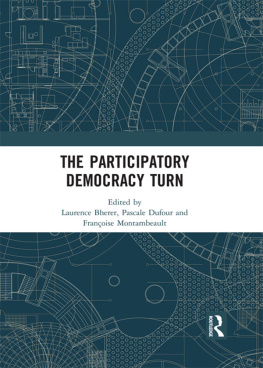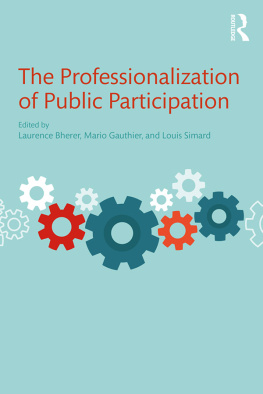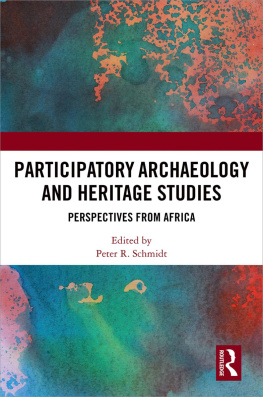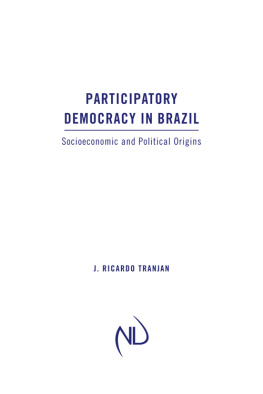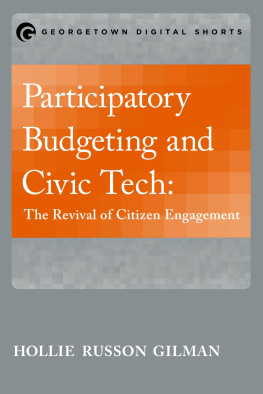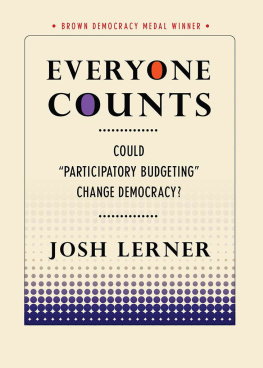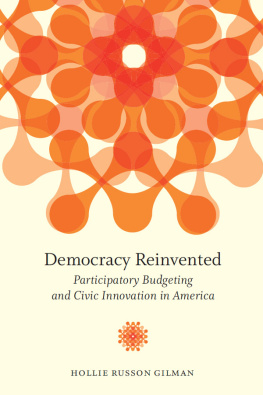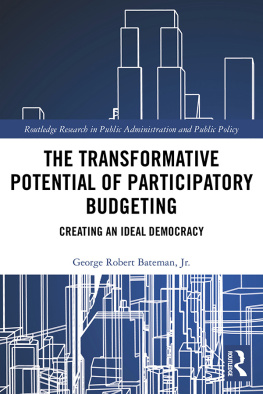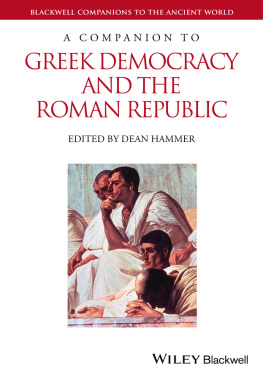The Participatory Democracy Turn
Since the 1960s, participatory discourses and techniques have been at the core of decision making processes in a variety of sectors around the world a phenomenon often referred to as the participatory turn. Over the years, this participatory turn has given birth to a large array of heterogeneous participatory practices developed by a wide variety of organizations and groups, as well as by governments. Among the best-known practices of citizen participation are participatory budgeting, citizen councils, public consultations, etc. However, these experiences are sometimes far from the original 1960s radical conception of participatory democracy, which had a transformative dimension and aimed to overcome unequal relationships between the state and society and emancipate and empower citizens in their daily lives. This book addresses four sets of questions: what do participatory practices mean today?; what does it mean to participate for participants, from the perspective of citizenship building?; how the processes created by the participatory turn have affected the way political representation functions?; and does the participatory turn also mean changing relationships and dynamics among civil servants, political representatives, and citizens? Overall, the contributions in this book illustrate and grasp the complexity of the so-called participatory turn. It shows that the participatory turn now includes several participatory democracy projects, which have different effects on the overall system depending on the principles that they advocate.
This book was originally published as a special issue of the Journal of Civil Society.
Laurence Bherer is Associate Professor of Political Science at the Universit de Montral, Canada.
Pascale Dufour is Professor of Political Science at the Universit de Montral, Canada.
Franoise Montambeault is Associate Professor of Political Science at the Universit de Montral, Canada.
The Participatory Democracy Turn
Edited by
Laurence Bherer, Pascale Dufour and Franoise Montambeault
First published 2018
by Routledge
2 Park Square, Milton Park, Abingdon, Oxon, OX14 4RN, UK
and by Routledge
711 Third Avenue, New York, NY 10017, USA
Routledge is an imprint of the Taylor & Francis Group, an informa business
Chapters 12 & 49 2018 Taylor & Francis.
Chapter 3 2018 Nina Eliasoph. Originally published as Open Access.
With the exception of Chapters 3, no part of this book may be reprinted or reproduced or utilised in any form or by any electronic, mechanical, or other means, now known or hereafter invented, including photocopying and recording, or in any information storage or retrieval system, without permission in writing from the publishers. For details on the rights for Chapter 3, please see the chapters Open Access footnote.
Trademark notice: Product or corporate names may be trademarks or registered trademarks, and are used only for identification and explanation without intent to infringe.
British Library Cataloguing in Publication Data
A catalogue record for this book is available from the British Library
ISBN 13: 978-1-138-50326-7
Typeset in Minion
by RefineCatch Limited, Bungay, Suffolk
Publishers Note
The publisher accepts responsibility for any inconsistencies that may have arisen during the conversion of this book from journal articles to book chapters, namely the possible inclusion of journal terminology.
Disclaimer
Every effort has been made to contact copyright holders for their permission to reprint material in this book. The publishers would be grateful to hear from any copyright holder who is not here acknowledged and will undertake to rectify any errors or omissions in future editions of this book.
Contents
Citation Information
The chapters in this book were originally published in the Journal of Civil Society, volume 12, issue 3 (September 2016). When citing this material, please use the original page numbering for each article, as follows:
Chapter 1
The participatory democracy turn: an introduction
Laurence Bherer, Pascale Dufour and Franoise Montambeault
Journal of Civil Society, volume 12, issue 3 (September 2016), pp. 225230
Chapter 2
Participatory enthusiasms: a recent history of citizen engagement initiatives
Francesca Polletta
Journal of Civil Society, volume 12, issue 3 (September 2016), pp. 231246
Chapter 3
The mantra of empowerment talk: an essay
Nina Eliasoph
Journal of Civil Society, volume 12, issue 3 (September 2016), pp. 247265
Chapter 4
Does participation mean reciprocal learning? The relationships between diverse stakeholders during participatory budgeting in Paris
Hlose Nez
Journal of Civil Society, volume 12, issue 3 (September 2016), pp. 266281
Chapter 5
Participatory citizenship in the making? The multiple citizenship trajectories of participatory budgeting participants in Brazil
Franoise Montambeault
Journal of Civil Society, volume 12, issue 3 (September 2016), pp. 282298
Chapter 6
Becoming a global activist through local social forum participation, or how to learn to speak global politics
Pascale Dufour
Journal of Civil Society, volume 12, issue 3 (September 2016), pp. 299313
Chapter 7
The limits of participatory democracy and the rise of the informal politics of mediated representation in South Africa
Laurence Piper and Bettina von Lieres
Journal of Civil Society, volume 12, issue 3 (September 2016), pp. 314327
Chapter 8
Conflicts and paradoxes in the rhetoric of participation
Ernesto Ganuza, Gianpaolo Baiocchi and Nicole Summers
Journal of Civil Society, volume 12, issue 3 (September 2016), pp. 328343
Chapter 9
The promise for democratic deepening: the effects of participatory processes in the interaction between civil society and local governments
Laurence Bherer, Jos Luis Fernndez-Martnez, Patricia Garca Espn and Manuel Jimnez Snchez
Journal of Civil Society, volume 12, issue 3 (September 2016), pp. 344363
For any permission-related enquiries please visit: http://www.tandfonline.com/page/help/permissions
Notes on Contributors
Gianpaolo Baiocchi is Associate Professor at the Department of Sociology and Gallatin School of Individualized Study, New York University, USA.
Laurence Bherer is Associate Professor of Political Science at the Universit de Montral, Canada.
Pascale Dufour is Professor of Political Science at the Universit de Montral, Canada.
Nina Eliasoph is Professor of Sociology at the Department of Sociology, University of Southern California, USA.
Jos Luis Fernndez-Martnez is Director of the IESA-CSIC, Crdoba, Spain.
Ernesto Ganuza is based at the Social Studies Institute, Spanish Research Council, Spain.
Patricia Garca Espn is based at the Departament de Ciencia Poltica i Dret Pblic, Universitat Autnoma de Barcelona, Spain.
Manuel Jimnez Snchez

